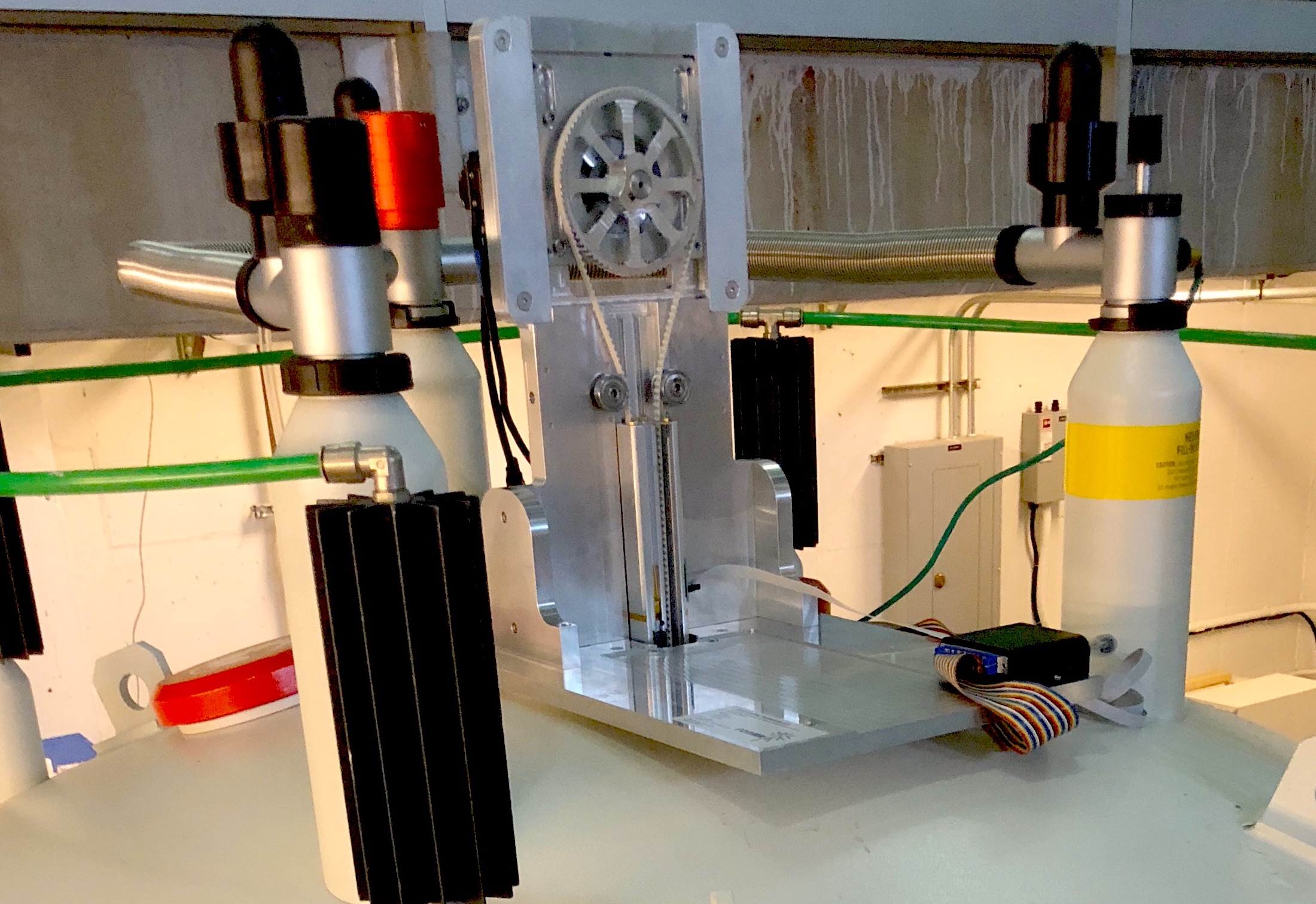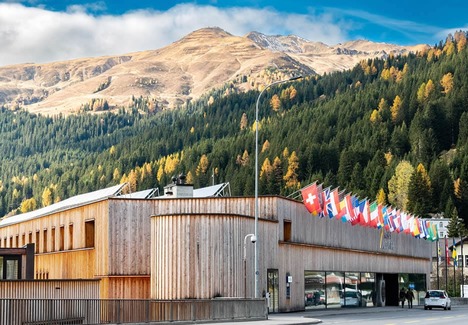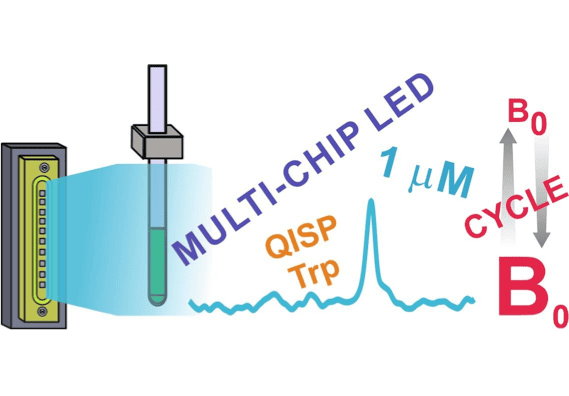New Products & News
Latest Publication from HFFC
A steady-state approach for analysis of high-resolution relaxometry
S. Bhattacharya, et. al
JMR (2025)
ICMRBS - 2026
Visit us at ICMRBS 2026! Explore our HFFC solutions for Relaxometry, Field-Cycling CIDNP, and In-situ Photo-NMR. See you there!
Publication in JMR
LC-Photo-CIDNP hyperpolarization of biomolecules bearing a quasi-isolated spin pair: Magnetic-Field dependence via a rapid-shuttling device
Database of Dyes for Photo-CIDNP
The Database of dyes for photo-CIDNP is now available online. Find the proper dye for your studied molecule.
New product: illuminators for Field Cycling NMR
FCNMR illuminator can irradiate the sample at various fields and move the sample back to high field for data collection.
New product: illuminators for Fixed-Field NMR
Compact illuminator for photo-related applications in Nuclear Magnetic Resonance. The new device for conventional NMR users.
High-Resolution Field-Cycling NMR
The Field-Cycling NMR technique is a technique that changes the magnetic fields of the sample during the experiment.
What is Field-Cycling NMR?

Field-cycling NMR (Nuclear Magnetic Resonance) is a technique that involves changing the magnetic field strength during an NMR experiment. In traditional NMR, a constant magnetic field is applied to the sample, causing the nuclei in the sample to resonate at a specific frequency. By detecting the resonance frequency, we can learn about the sample's chemical and physical properties. In field-cycling NMR, the magnetic field is periodically varied over a range of strengths, causing the sample's resonant frequency to change as well. This allows for the observation of additional information about the sample, including its relaxation properties and interactions with the surrounding environment.
Special intruments required for Field-Cycling NMR
We designed the High-Field Field-Cycler to integrate with commercial high-field NMR spectrometers, providing researchers with a highly advanced method for measuring relaxation properties. This instrument delivers exceptional sensitivity and high-resolution spectra, and is capable of conducting diverse field-cycling studies. It has become a vital tool in molecular science, allowing researchers to explore molecular interactions and folding mechanisms through photo-CIDNP. The instrument's capabilities are further enhanced by the inclusion of a correlated illumination device.

What is illuminated NMR?
Illuminated Nuclear Magnetic Resonance (NMR) merges NMR spectroscopy with light, offering a powerful tool for chemical analysis and optogenetic engineering. Notably, Photo-CIDNP (Chemically Induced Dynamic Nuclear Polarization) enhances NMR signal strength by transferring energy from light-activated photosensitizers to target nuclei. This technique unlocks insights into radical reactions, molecular dynamics, and hidden reaction pathways, revealing the fascinating world of molecular behavior under light's influence.
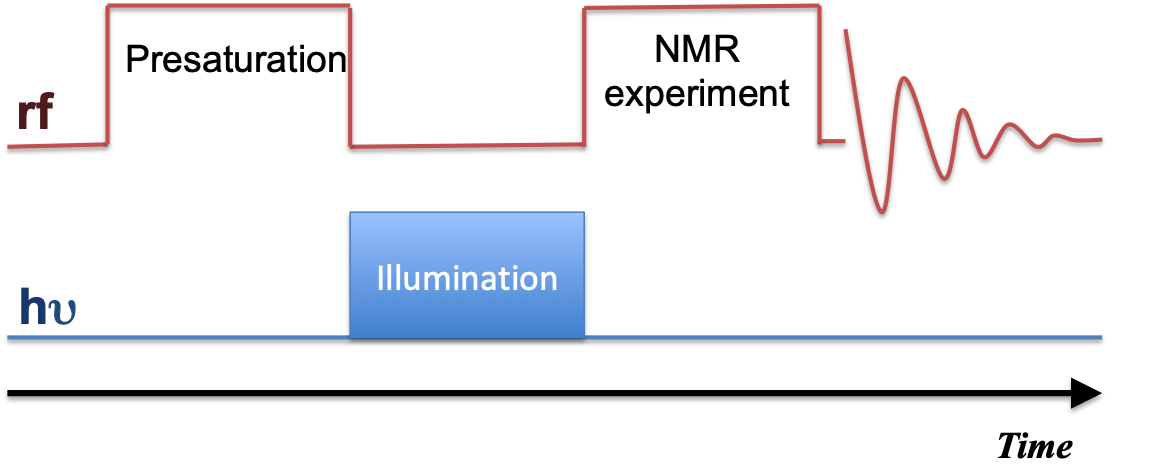
Special instruments required for illuminated NMR
We have designed two specialized illuminator models designed to seamlessly integrate with commercial high-field NMR spectrometers.
The first model, the high-field illuminator, facilitates sample irradiation within the commercial high-field NMR spectrometer's sweep spot.

The second model expands measurement capabilities from a fixed field to various fields. Our innovation combines field-cycling techniques with sample irradiation, allowing for variable stray fields within an NMR spectrometer. Importantly, this device eliminates the need for lengthy optical-fiber flipping during shuttling, enabling rapid and precise movement of the field-cycling sample between the illumination and acquisition sweep spots. The shuttle-illumination device is an exclusive add-on to the High-Field Field-Cycler (HFFC), enhancing the capabilities of illuminated NMR experiments.

